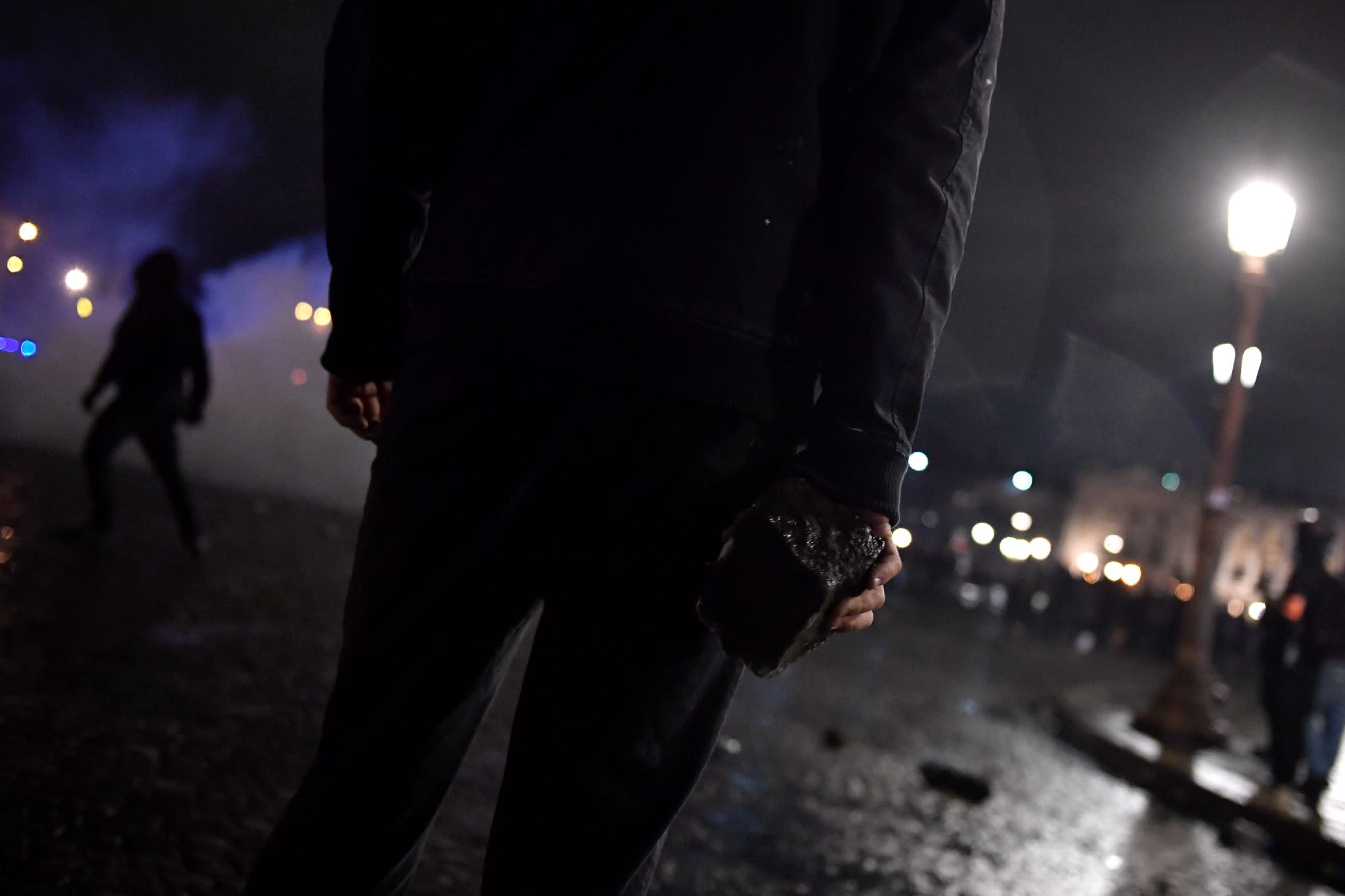
From the Ill Will collective comes a translation of a short text by Josep Rafanell i Orra on the protests against pension reform in france (23/03/2023) …
Crowds against Pathology
That the president of any republic would invoke Gustave Le Bon (of whom Mussolini was an attentive reader) to justify his idea of politics is strictly speaking a matter of psychopathology. Certainly, we’re dealing with a rather unsavory character — rarely has a president been so hated, inspired such a level of contempt. It is true that the crowds of people who rise up against him see him only as a madman, surrounded by lackeys who patiently wait for their moment of fortune. Certainly, his endless posturing and jeremiads only inspire deeper disgust.
But all this is no longer the point. Macron confronts us today as the quintessential Republican. And French republican institutions, since their origins, have served as a permanent machinery of counter-insurrection. Yes, the republican institution and its constitutions were created against the communards. Yes, the French police force is itself republican (this was already the dictum under Pétain). Yes, the republican government can therefore exercise its violence through its police force, which forms the intermediary body between the crowd and power, a power that continues to be founded upon a French arch? deeply anchored in the monarchic matrix, embellished with every manner of courtesan folklore.
Where things become more complicated is when we consider Macron not only as a psychopathological caricature of republican monarchism, but as among the most worthy representatives of the liberal-fascism currently spreading everywhere. Having enshrined radical negligence as its founding principle of government, this is an order that now engenders only mass atomization, which annihilates every spark of community, while attempting to destroy any and all places that stand against the administered space of disaster, as well as the interdependencies that allow them to exist.
It is this liberal-fascism that seeks to pilot us into a condition of universal preoccupation: besieged, paranoid, a social world in which we govern ourselves as if we were tiny totalities closed in upon themselves, fearful of encounters and of difference as unwelcome invasions, open only to the flows of valorization that spin in circles through the emptiness left by their own destruction.
In the face of all this, social disorder returns. A disorder that refuses the sinister accounting to which lived time must submit: in clashes in the demonstrations, in the nightly irruptions that ripple across the policed metropolis, in the blockades and refinery occupations, in the multiplication of attacks and sabotage, in the struggles against the depletion of water tables and against earth-destroying agro-industry. Presence, the entanglement between beings, makes its appearance again. And along with this, a refusal to allow oneself to be governed.

As in every uprising, the anarchic groundlessness of life reappears, along with forms of mutual aid and cooperation that explode the sick idealism that would make the world into one giant business. What we’re witnessing is the interruption of progressive bankruptcy, of an endless growth, an accumulation without end. Here an opening towards new times becomes possible. But it is also old buried stories that burst forth.
Resurgence and insurgency coexist: this is the fear that haunts all governments.
We are no longer in a social movement. As was the case with the Yellow Vests uprising, we are seeing the reemergence of communal [communard] forms that play with social categories, that point toward a dissolution of identities and governmental subjects. Once again the heady scent of distrust toward representatives is spreading, improbable encounters are taking place in the riots, blockades, and occupations. Refusal of the worm-eaten scenes of political representation reaches new heights.
There is no guarantee that other worlds will open themselves up to us. But as Gustav Landauer used to say, before he was assassinated by the Freikorps (ancestors of today’s French BRAV), the revolution is an eternal continuation [un éternel prolongement]. And to all those obsessed with social constitutions, we can only reply with his words: “The revolution must become an element of our social order; it must become the basic rule of our constitution.”
Such would be our sole constitution: one that nourishes revolt in crowds, their communities and geographies, their reappropriations, their unexpected encounters, where new friendships are forged and where presences find their place. While today’s crowds might come together through refusal, they give birth to an outside without which we would suffocate from the social interiority that pathological rulers claim to govern.
Insurrections come and go. The revolution insists.
First published on Tous Dehors, March 23, 2023
Translated from the French by Ill Will
Other languages: Français, Español, Polski
Images: Teresa Suarez, Julien De Rosa
